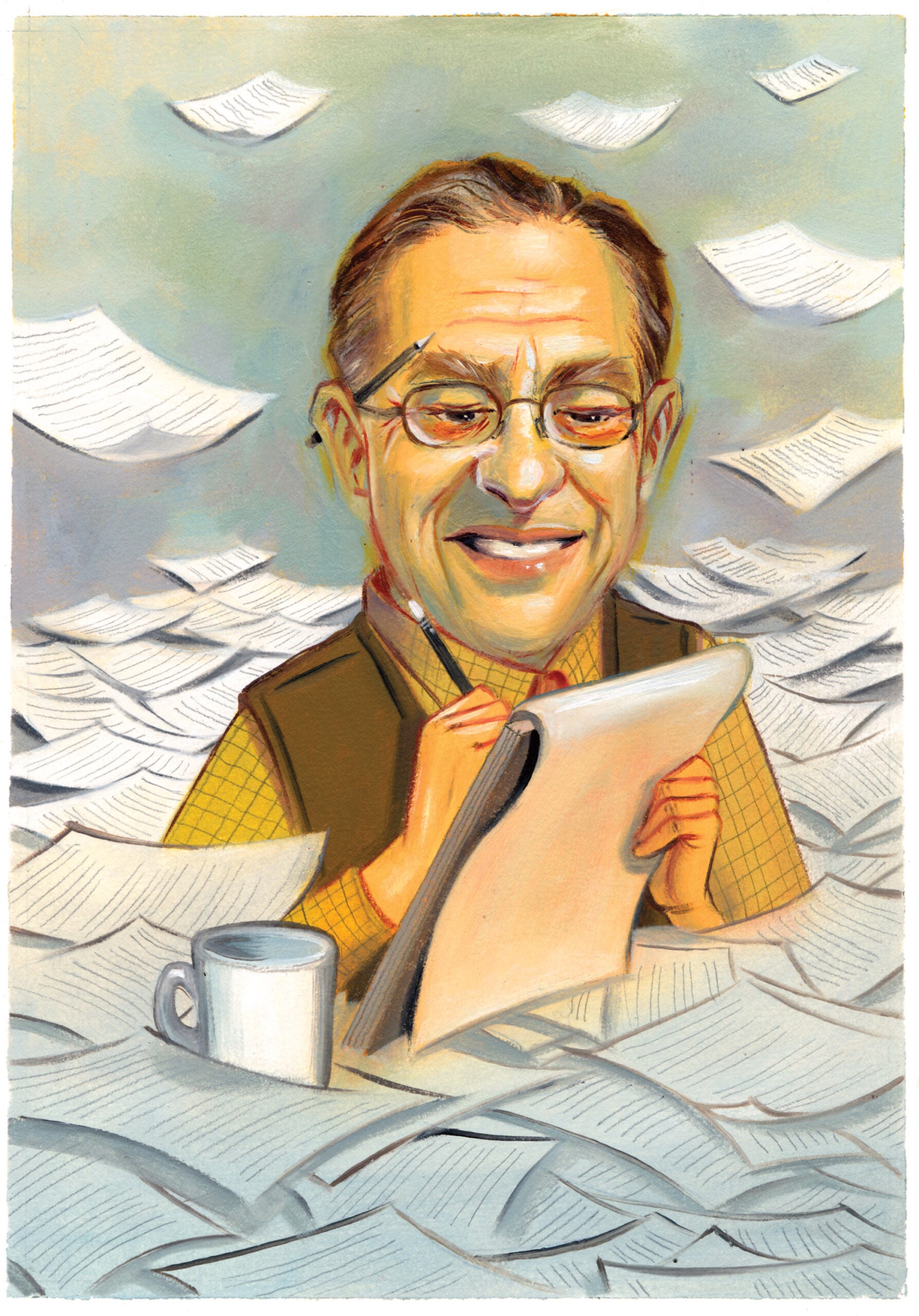Ask Professor Alan M. Dershowitz to rank his favorite professional activities, and his response is unequivocal.
“I love the actual act of teaching, being in the classroom, the most,” he said. “But a close second is sitting home alone with my white legal pad and pen, all by myself, and just writing, writing, writing.”
The evidence suggests that Dershowitz is not overstating the case. “Rights from Wrongs: A Secular Theory of the Origins of Rights” (Basic Books), published in November 2004, was his ninth book since the beginning of 2000–and his 19th since 1982, when Random House published his first popular book about law, “The Best Defense.”
Furthermore, there’s no reason to believe that the prolific Professor Dershowitz will be slowing down any time soon. He has two more books in the hopper. One, an examination of pre-emptive government action as a tool for self-protection, is already in book-length manuscript form and undergoing edits. The second, which he’s calling “The Case for Peace,” is a follow-up to his 2003 book “The Case for Israel” and will lay out his ideas on how to achieve lasting peace in Israel.
At the moment, both of these pending projects tangibly exist as stacks of paper within boxes that are piled on one side of his Hauser Hall office, where his earlier books, some of them foreign-language editions, line the walls. On a recent Friday afternoon, Dershowitz stood next to this massive output and talked about how he does it. He reached into a “Case for Peace” box and extracted a white legal pad, words written on every other line to provide space for additions. “I write everything by hand, and then I give it to Jane to type,” he said, referring to Jane Wagner, his assistant.
While the legal pad is the first palpable evidence of a Dershowitz book, the process actually begins months or years ahead of the writing, he points out. “For me, the trick to writing a book is to think it through completely,” he said. “I separate out the craft of writing from the thinking it through. My wife will tell you I walk around the house, smacking my head and saying, ‘I don’t have it. I don’t know where it’s going.’ And then suddenly it gels, I sit down to do it, and the writing comes very fast. Very fast.”
He doesn’t follow a daily schedule, as many writers do. But he does follow a weekly one, which begins Friday night after his classes are over and continues through Tuesday.
Dershowitz also relies on various types of cross-fertilization. First, he’s also a prolific author of opinion articles for newspapers and magazines, and some of that work finds its way into his books. Second, his classroom and seminar activity also often informs his books. He points out, for instance, that his pre-emption manuscript has been influenced by a seminar he taught on the subject during the fall semester. “I handed out to students in the seminar a very, very rough draft of a few chapters. We went over some of them in class, students did papers, and in a couple of instances I was able to incorporate some of their ideas–and give them credit, obviously–into some of what I was writing.”
Finally, another obvious contributing factor to Dershowitz’s writing is his wide-ranging curiosity. His post-1999 books alone have addressed international terrorism (“Why Terrorism Works”), legal history (“America Declares Independence” and “America on Trial”), leading a fulfilling professional life (“Letters to a Young Lawyer”), civil liberties (“Shouting Fire”), the origins of rights (“Rights from Wrongs”) and religion (“The Genesis of Justice”).
Ask Dershowitz about the potential for burnout, and he just smiles and shakes his head. “I just never feel that,” he said. “I’m always energized.”
And it’s an energy that he wants others to share. Recently, elementary students at P.S. 312 back in Dershowitz’s hometown of Brooklyn, N.Y., asked if he might share some thoughts on writing. On April 14, he sent them a letter with the following words of advice: “Write like you speak and like you think. Don’t try to be fancy. Use simple words. Brooklynese is one of the most expressive languages in the world. You speak it. Now write it. … I know it will move me. So keep writing. Write every day.”

